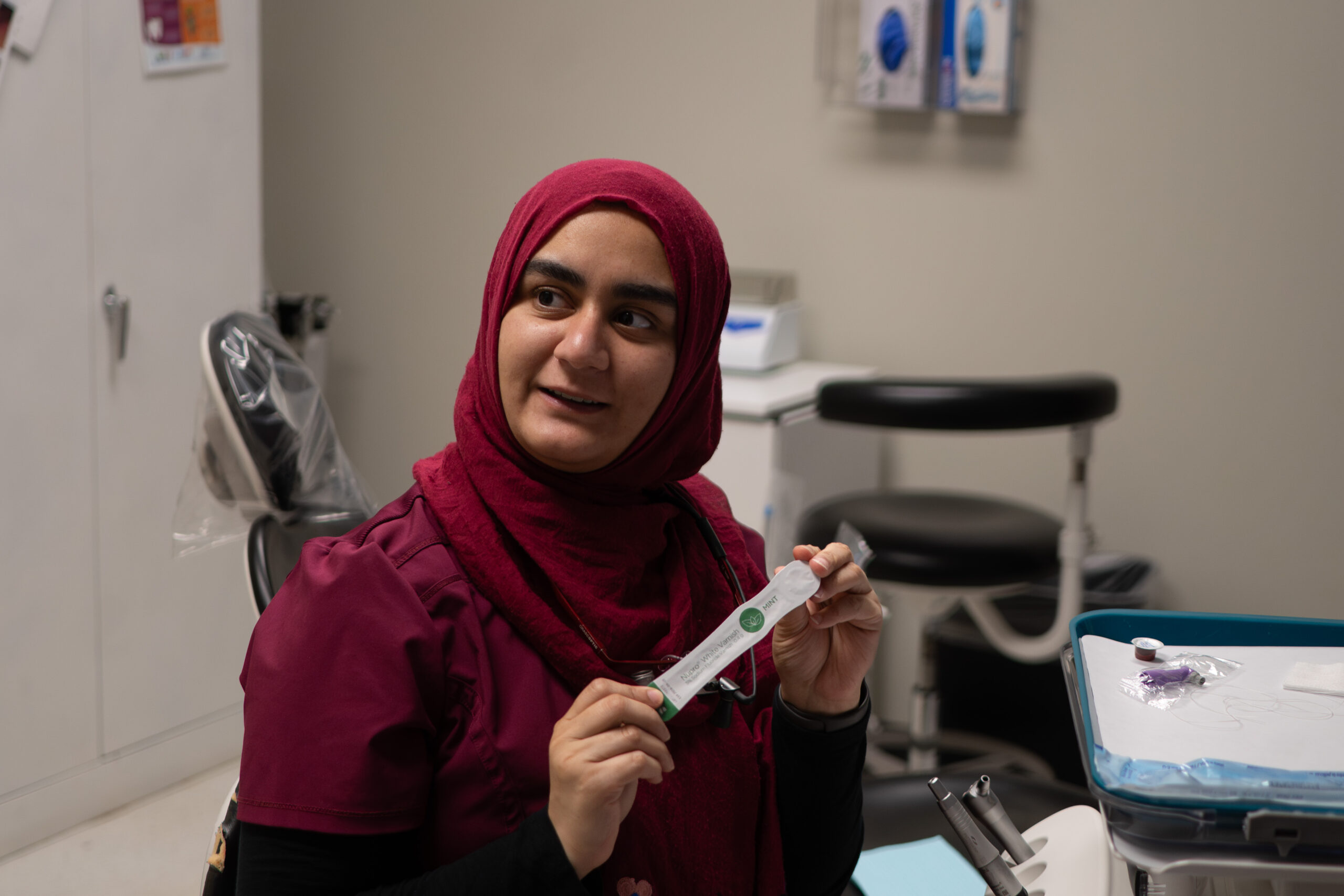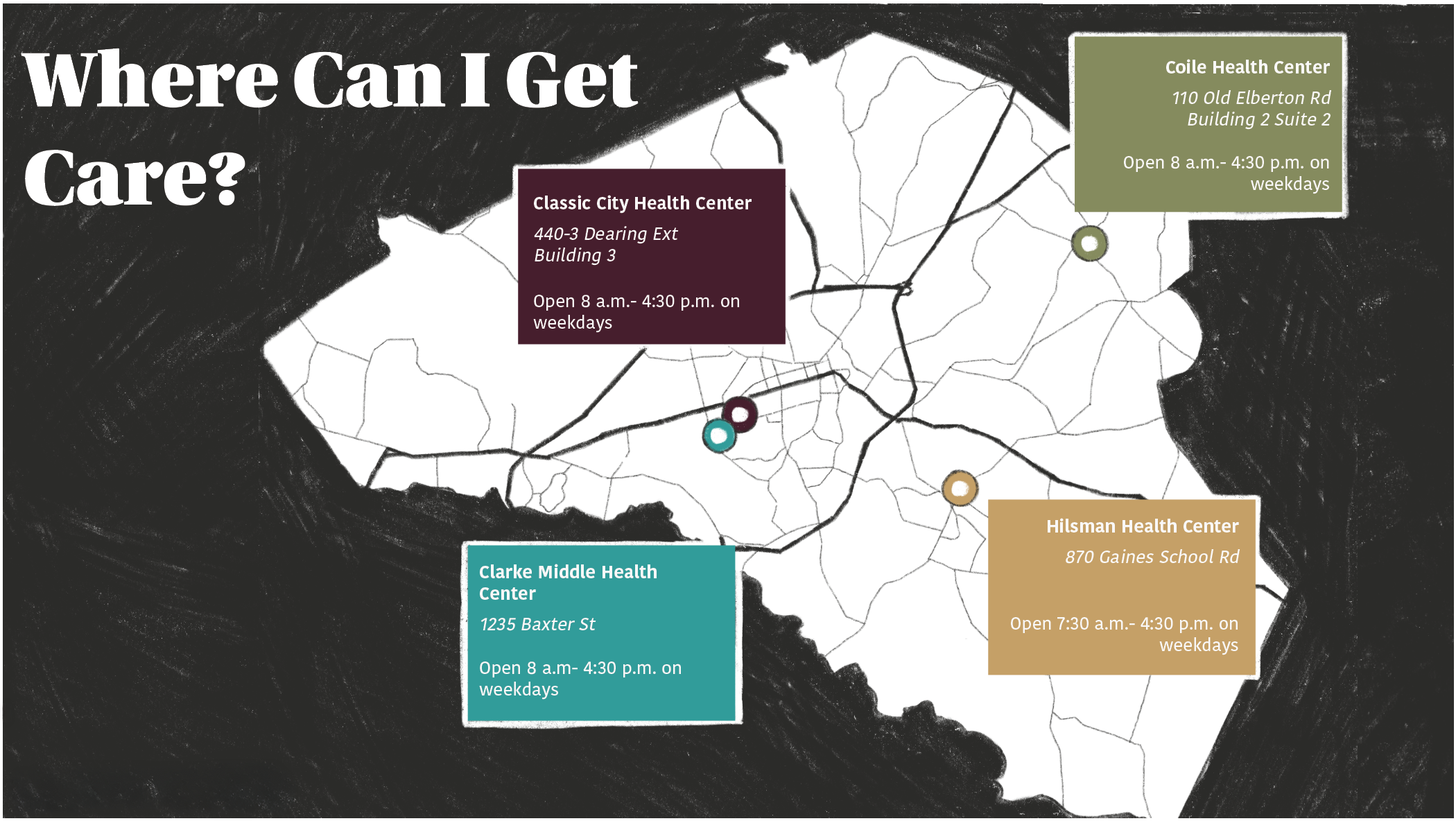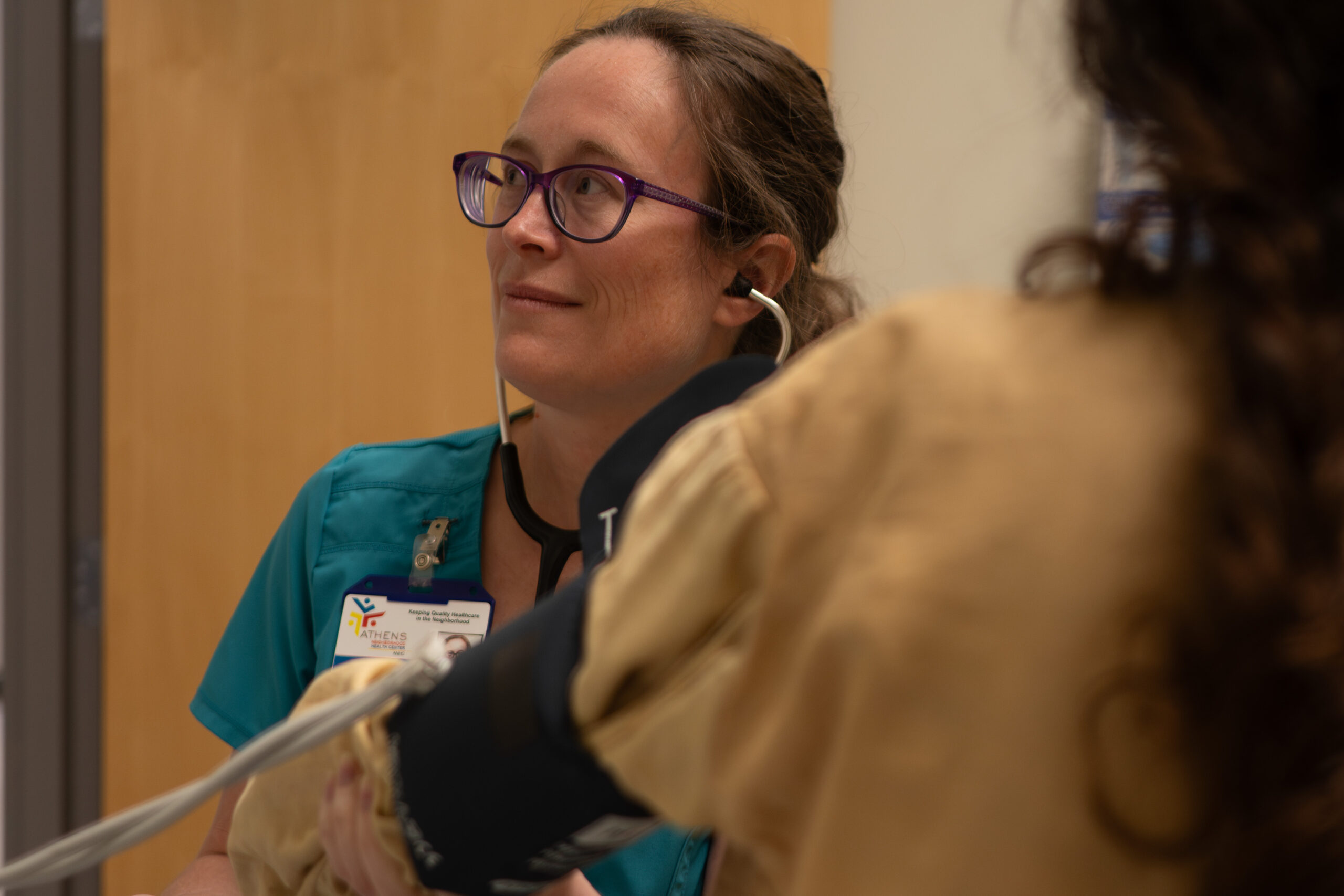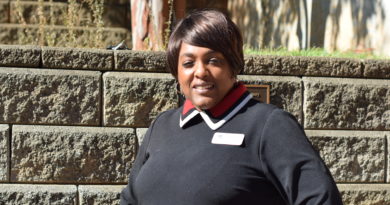
Think globally, act locally: CCSD Health Centers offer community-accessible care
From treating common illnesses like fevers to addressing mental health concerns, school-based health centers improve health access in communities by allowing immediate access to healthcare for students and their families at little to no cost and being able to schedule appointments and receive services from doctors and dentists.
“There are so many barriers to accessing healthcare, and providing free care for CCSD students and their household family members along with CCSD staff is critical to keeping students healthy so they can remain in the classroom, engaged and thriving,” Dr. Kate Meixner, a faculty member at the Clarke Middle Health Center said.

For many families, accessing healthcare outside of school can be stressful and difficult. A 2023 report from the National Association of Community Health Centers found barriers that include healthcare affordability, shortages and medically underserved areas, preventing individuals from seeking treatment.
However, school-based health centers can help eliminate these barriers by allowing patients to receive health services affordably and efficiently. Clarke County School District has established four health centers throughout Athens-Clarke County over the past six years. The creation of health centers within the community makes it easier for students and their families to receive medical treatment.
“It improves the health outcomes and health access for all of our Clarke County students,” CSSD Health Centers Coordinator Meredith Dyke said. “It’s a quick turnaround to get to take care of their health needs, and it’s also a quick return back to the classroom so they don’t (miss anything).”
Opened in 2019, the Hilsman Health Center was the first Clarke County school-based health center: the first school-based health center in Northeast Georgia. At the beginning of the 2024-25 school year, the Hilsman Health Center provided local residents with 84 physicals, 144 well-child checks and updated asthma action plans for 39 students in just one month.
“We really try to focus on being accessible, so that whenever someone needs an appointment they can be seen. We focus on preventative care, such as improving vaccination rates, screening each age group. That way we can intervene if there is any type of abnormality,” primary care provider Sara Trivet said. “We also work to increase access to child check-ups and sports (physicals) as a goal, so that students can be involved in school and play sports.”
School-based health centers within CCSD allow parents and guardians to sign consent forms allowing students to receive treatment during school hours. This enables staff and faculty from health centers to assist students who lack transportation or have busy schedules, which also eliminates the barrier of parents missing work.

CCSD partnered with Athens Free Clinic to establish the Clarke Middle Health Center next, serving students from Bettye Henderson Holston Elementary school and Clarke Middle School since November 2022. The Clarke Middle Health Center received a $100,000 grant through UGA’s Presidential Interdisciplinary Seed Grant program as a starting point.
The clinic is staffed by three different teams including healthcare, behavioral/mental care and a legal assistance team. The legal assistance team is composed of law students from UGA and their supervisors, assisting individuals by providing screening and possible referral to UGA or other community legal assistance services. In addition, the CMHC brings mobile clinics to Cedar Shoals High School and Clarke Central High School twice a month to provide students the opportunity to be seen and receive medical treatment.
The health center at CMS currently operates out of a mobile unit. However, CCSD constructed a new 4,000 square foot health center and plans to host the ribbon cutting ceremony for that location later this spring. Additionally, the health center will offer dental services in the coming year.
“The new Clarke Middle Health Center is an exceptional space and we are so grateful that our school district did a really awesome job of planning with us to make it a very functional space for our whole interdisciplinary UGA team with primary care, behavioral health, nutrition, legal services and dental. It is really an innovative school-based health center that will be able to meet the needs of our community,” Meixner said. There are many reasons why people lack equitable access to healthcare, but the most common issue is not being able to afford health insurance, according to a report from the National Association of Community Health Care. A 2005 report from the National Library of Medicine found that the risk of hospitalization and emergency department visits for children with asthma decreased with school-based health center programs, which saved families an estimated $970 per child.
Another study from Journal of School Health also found that after students received mental health counseling from their school-based health centers, student absences decreased by approximately 50% and decreased student tardiness by 25%.
“Especially with the rise of measles outbreaks, improving overall vaccinations of children in school, as well as keeping all the kids up on the child visits is important to make sure that (children and) adolescents are developing how they should,” family nurse practitioner at Classic City Health Center Sarah Brock said. “It also helps to improve student and faculty and staff attendance at school (and) decreases disruption in their day to day life as much as possible.”
These health centers are made possible by partnering with schools and community health organizations to offer care and grants offered by institutions, government agencies or local organizations.
The two most recently established school-based health centers are the Classic City Health Center and the Coile Middle Health Center. Both centers fully opened to the community on Oct. 28. CCSD partnered with non-profit Medlink and received a $2 million grant from the Dept. of Education to purchase required equipment for the health centers such as lab equipment and vaccine refrigerators.
“Having (school-based health centers) in the community is a major help,” Adan Lopez, a local Athens resident, said. “When my kids need to be seen by a doctor or get a quick check-up, (school based health centers) are a great option because everyone can go in there and receive treatment easily.”



